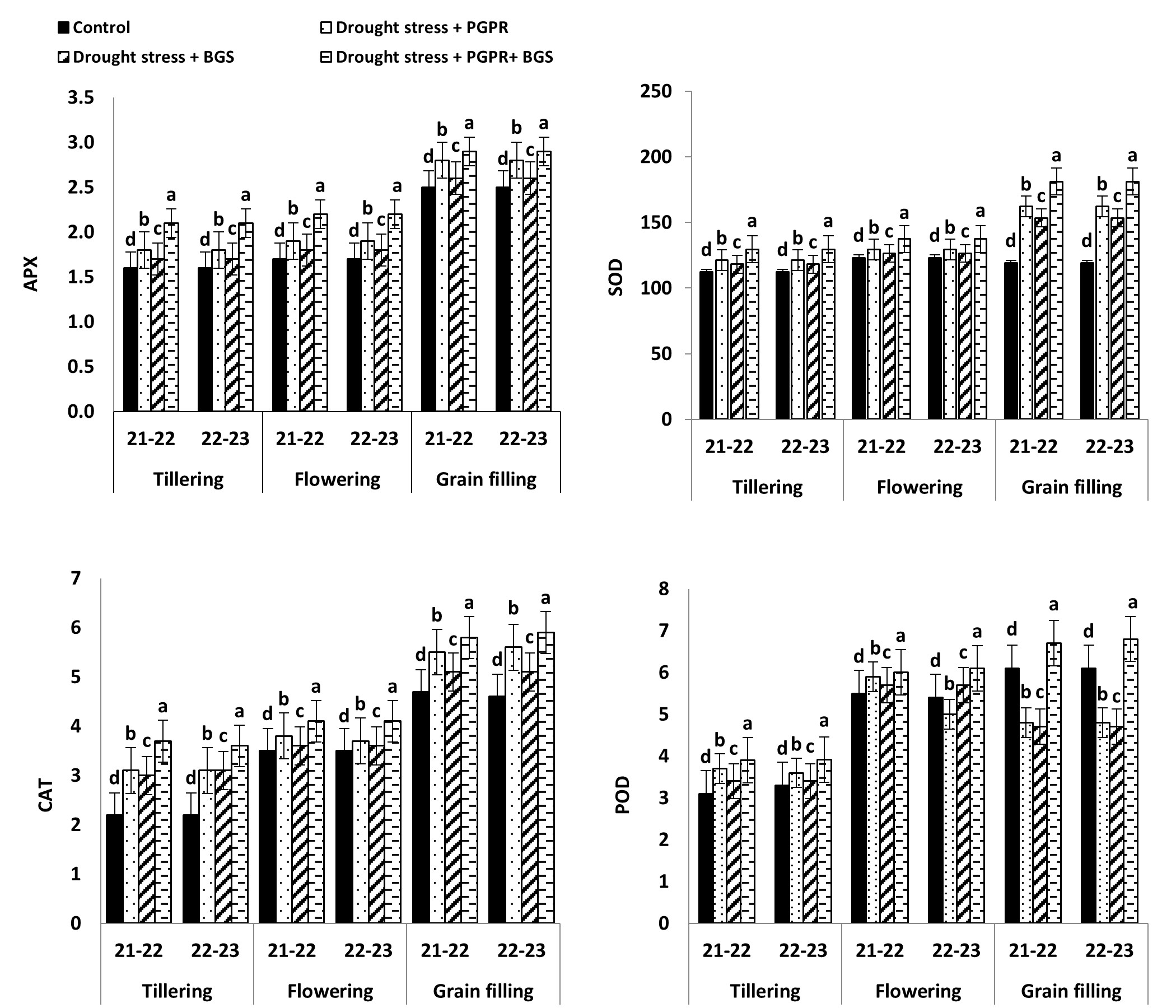
Drought stress has a significant impact on cereal-based staple food production, particularly in developing countries like Pakistan. To ensure a sustainable and reliable food supply, it is essential to develop comprehensive production plans that incorporate various approaches to mitigate the effects of drought. In a study conducted using a randomized complete block design, we investigated the potential of plant growth-promoting rhizobacteria (PGPR) and biogas Slurry (BGs) either individually or in combination to alleviate drought stress at different stages of wheat growth. The two-year field research demonstrated that the application of Azosprillium lipoferum with biogas slurry resulted in improved water relations, chlorophyll content, grain quality, yield, and related characteristics in wheat plants compared to the stressed treatments. Particularly, the combined treatment of PGPR and BGs exhibited the most favorable outcomes. Notably, the combined treatment effectively mitigated drought stress by significantly increasing antioxidant levels (17% APX, 29% POD, 34% CAT, and 41% SOD) during the grain-filling stage (GFS) compared to the controls. The combined treatment resulted in a remarkable 40% improvement in the respective controls at the GFS stage. Overall, the combined use of PGPR and BGs was identified as an effective strategy to enhance the resilience of wheat plants to drought, particularly in arid and semi-arid regions.
Total file downloads: 29